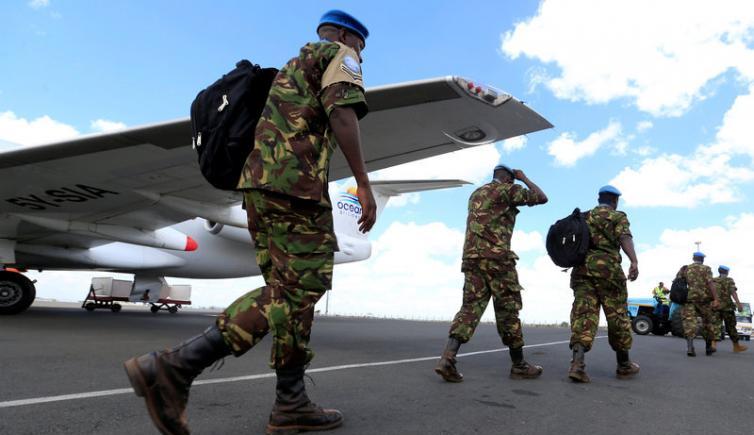Kenya to resume participation in South Sudan peacekeeping force

January 30, 2017 (JUBA) – Kenya has accepted to resume its participation in the United Nations Mission in South Sudan (UNMISS) following a reconciliation meeting between President Uhuru Kenyatta and new UN Secretary-General Antonio Guterres on Sunday.
The reconciliation was announced in a statement issued by the Kenyan presidency pointing that the meeting took place on the sidelines of the 28 Ordinary summit of the head of states and governments in Addis Ababa.
“I want the United Nations to be reconciled with Kenya. Let us make a fresh start. Kenya is a very important player in the region and I feel that we have to work together to secure peace and security. Let us put the past behind us,” said Guterres in a meeting with President Kenyatta, according to the Kenyan presidency.
“President Kenyatta said he agreed to a reset in the relations, and would look forward to senior officials from both sides meeting in Addis Ababa to work out details of the new arrangements”.
On 2 November 2016, Kenya decided to withdraw its 1,000 troops deployed to South Sudan to protest the relief of a Kenyan general from his position as commander of UNMISS force. Kenyan foreign ministry, at the time, said the force commander had been sacked without consultation with the Kenyan leadership.
The statement said that Guterres reiterated UN confidence in Kenya’s military and offered to Kenyatta to appoint the commander of African Union-United Nation Mission in Darfur (UNAMID).
The UN chief also asked the Kenyan president to continue to be engaged in South Sudan, and “to urge the leadership of Africa’s newest nation to pursue inclusivity as a way of sustaining peace”.
Kenyatta had played a crucial role in the IGAD process to end the South Sudanese conflict. He worked to bring President Salava Kiir to ink the agreement despite his reservations over the deal.
African Union, IGAD and the United Nations Sunday urged the warring parties to commit themselves to the signed peace agreement, to ensure inclusivity of the political process in the proposed National Dialogue and in the implementation of the peace agreement.
(ST)
